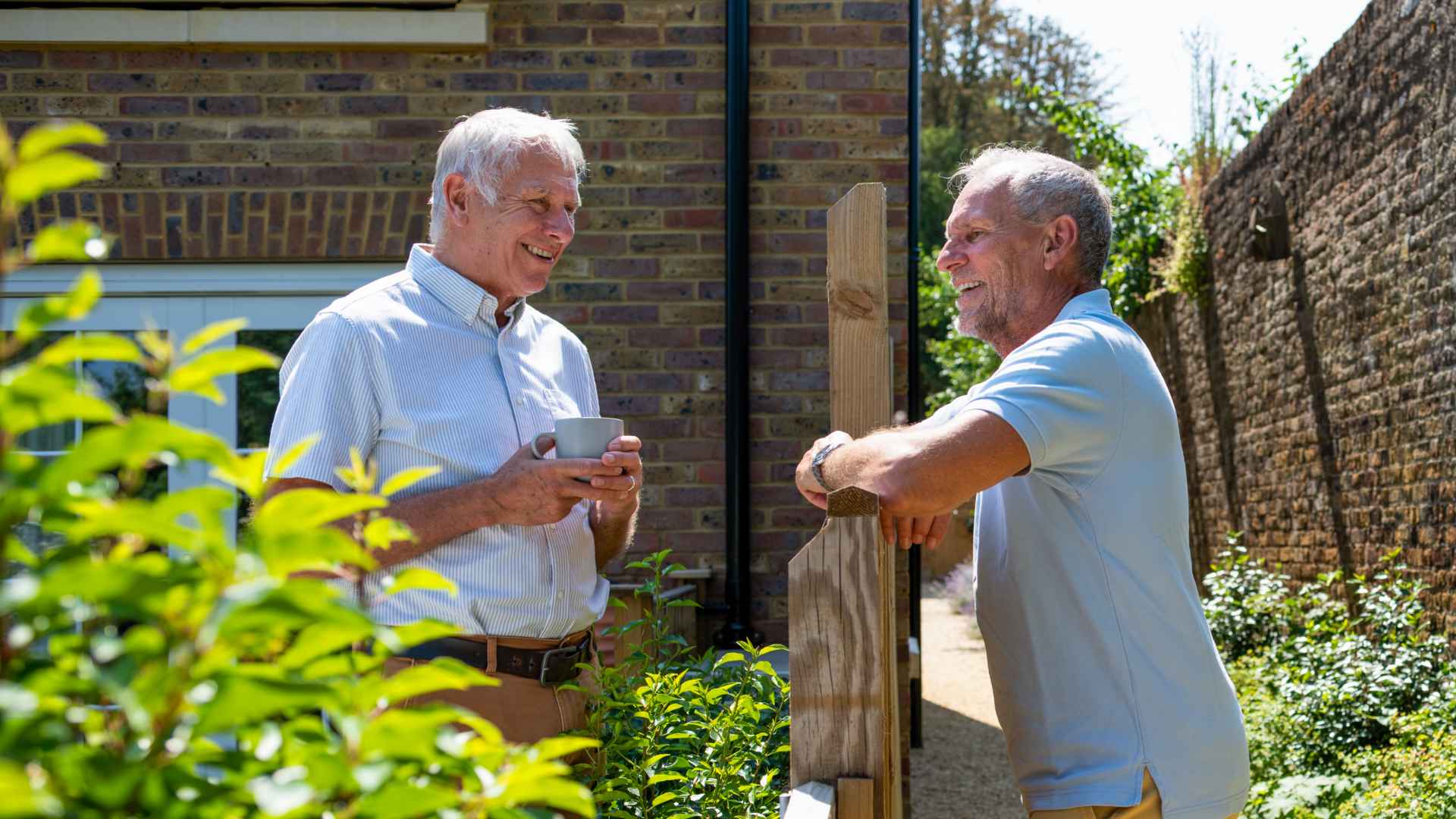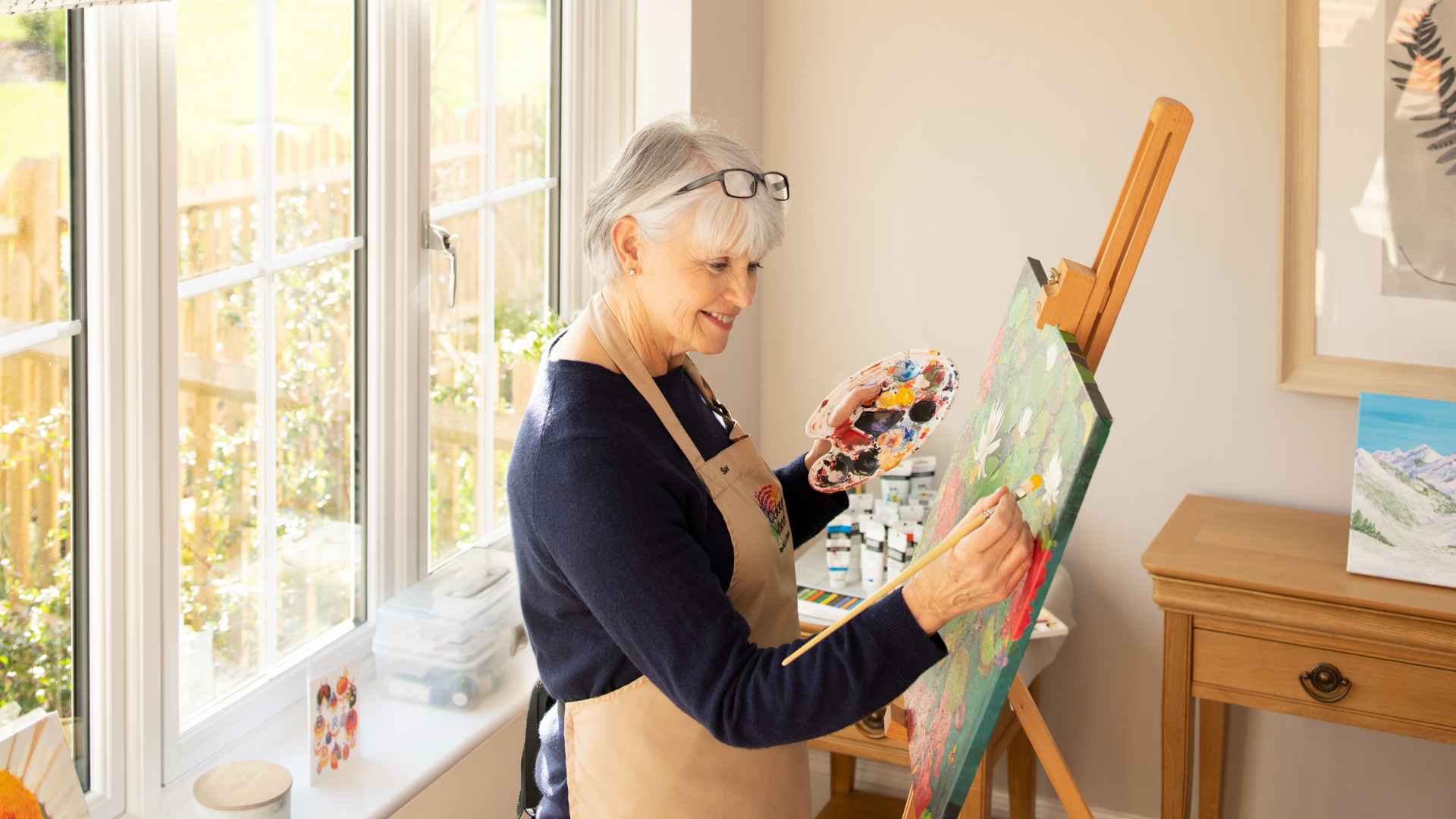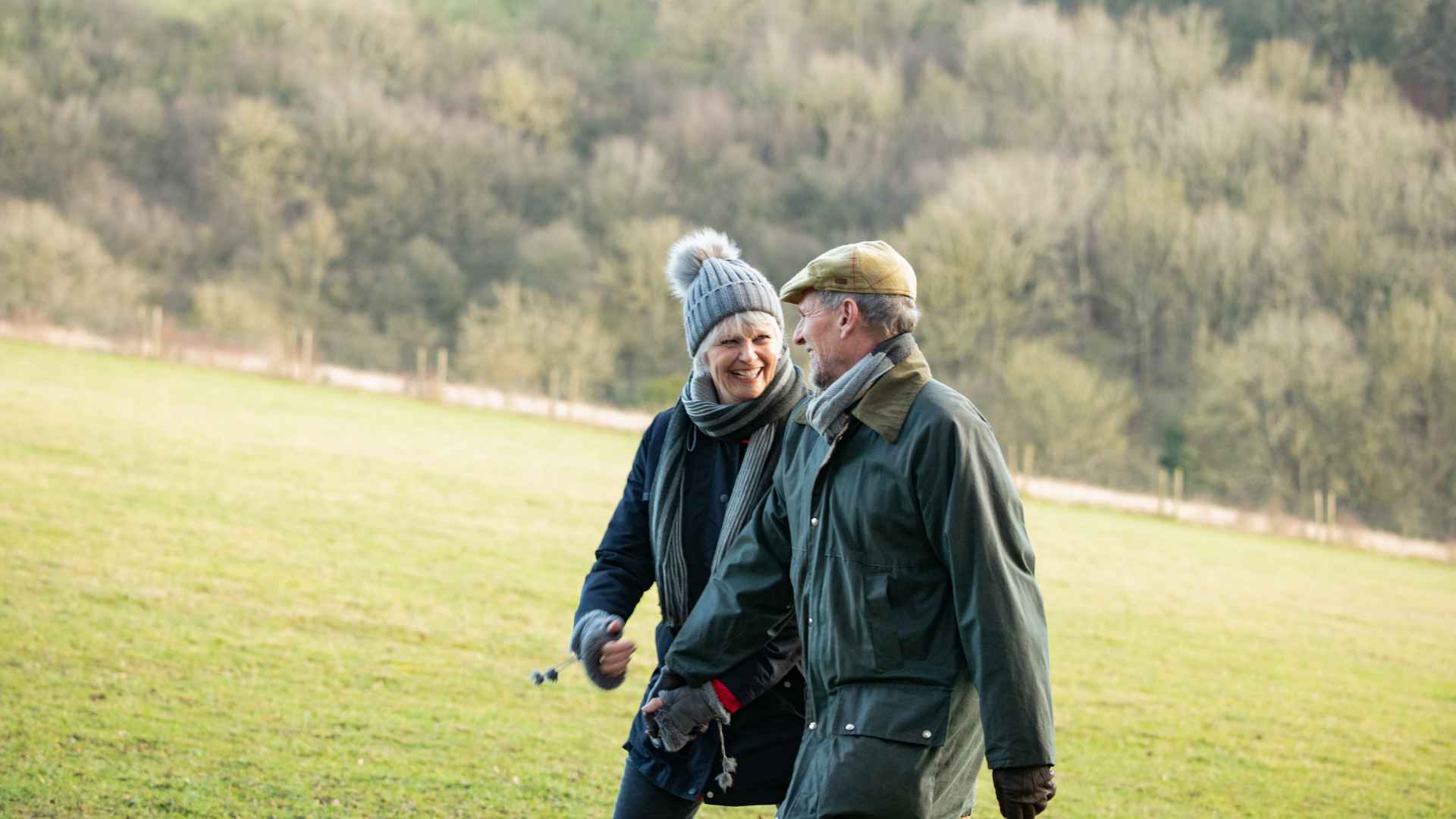

.jpg)
There are many groups and organisations available to enable and support our learning and life experiences, but not many of these are exclusively for mature people. Find out about the U3A, what activities they organise and how to take part below.
Continuing lifelong learning into your retirement has been shown to improve your mental wellbeing, improve your health and help you forge new social connections.
Keeping your brain engaged and active, no matter what your age, is about embracing a passion for education and for developing new skills. It can also give your life focus and purpose and provide more personal fulfilment.
Many organisations offer learning and development courses including many local authorities but the U3A is purely for more mature people. If you’ve always wanted to learn a particular skill or if you enjoy sharing your knowledge with others, the U3A could be a good option for you.
The U3A comprises over 1,000 locally run interest/learning groups that provide a wide range of opportunities to come together and learn for fun or to explore new ideas, skills and activities.
There’s no homework and no exams – this is learning for fun rather than to achieve qualifications.
There are no age limits but the U3A, as its name suggests, is for people in their ‘third age’ – retired or semi-retired. The organisation has around 430,000 members, most aged 50 and over.
The U3A first started at the Faculty of Social Sciences in Toulouse, France, in 1973 being the brainchild of Professor Paul Vellas. In France, the branches of the U3A are mostly associated with a local university and this academic model is used in many other countries, particularly in continental Europe.
By the early 1980s, the concept reached the UK where it was radically changed to become more of a self-help organisation by its founders, Peter Laslett, Michael Young and Eric Midwinter.
Each U3A in the UK is formally structured as an independent, self-financing and self-managing charity with links to the Third Age Trust, a national co-ordinating body.
Each individual U3A comprises a number of activity groups which may cover a wide range of different topics – the arts, languages, physical activities, discussion groups and games.
Most U3As are centred on a particular town or region and the activity groups meet in hired halls or, sometimes, in members’ houses. There is also some provision for members to participate online.
The U3A is non-religious, non-political and has three main principles:
Interest groups and events vary according to the area in which you live and the local group which you attend.
Some U3A groups arrange trips to museums, concerts or theatres as well as study days and holidays. If there’s enough demand in your area for a certain subject, you can start your own study or skill group. Each group has its own volunteer leader or co-ordinator who has a particular interest or expertise in the subject. For language classes, most of the group leaders tend to have specialist knowledge, or they may be native speakers of the language they’re teaching.
Typical courses may include the following:
There are plenty of different types of events online for members including talks, workshops and courses at no extra cost. These are led by members with a passion or a talent to share or by specialist guest speakers.
Over the years, the U3A has built up relationships with leading organisations so can offer selected national events online – including events with the National Gallery, Royal Institution, Guildhall Art Gallery and the British Library (there may be a small charge for some of these). There are also workshops, webinars and interactive sessions delivered by members which are free to join – but need to be booked. These can include Laughter Yoga Workshops, Seated Yoga, Live Cookery Demonstrations, Digital Skills, Writing Poetry for Publication and Performance, Sleep and Dreams and so much more.
For those who are unfamiliar with Zoom, there are a number of How To Guides and Online Tutorials on the U3A website in the ‘Online learning Events’ section.
Each U3A group is different so fees vary but the fees are usually lower than those of adult education courses because each U3A is run by volunteers. To join any group, you will need to be a member and membership costs vary according to the group but are generally no more than £20 a year. We have included details of the costs of some of the U3A memberships within this article but it’s best to check with the group.
According to the majority of studies and research that has been carried out, it is evident that joining the U3A has made a positive and healthy impact on the lives of its members with the majority of people experiencing definite improvements in their health and satisfaction with life. In terms of general health, well-being and cognitive abilities, studies show that U3A members score more highly than non-members and that attending U3A courses may help stave off mental decline.
New U3A groups are constantly ‘popping up’ – if you visit the U3a website, there is a section entitled ‘Join Us’ and you’ll be able to search for your local branch. The following groups are a examples of those within a close proximity to current or forthcoming Beechcroft locations:
Please note: prices and activities included below are examples and may be subject to change. Please see each U3A's website for the latest information.
Website: www.bracknellu3a.org.uk
Close to: Binfield House, Binfield
This U3A branch was formed in 2001 and today has about 320 members. Regular activities take place from Monday to Friday and there are about 50 different interest groups. If you wish to join, you can turn up as a visitor and you’ll be able to talk to committee members about joining. Once you have joined, there’s a Members Area on the website. Activities include:
Website: u3asites.org.uk/Harpenden
Close to: Redclyffe Place, Harpenden
Harpenden was one of the very first U3A groups, founded 40 years ago and now has a membership of around 170 people and more than 20 groups. The general meetings are held at Harpenden Trust Hall each month. There are two meetings – at one, there is a paid speaker and the other is a more social event with refreshments and a short talk by a member. The branch also arranges outings to places of interest. New members are invited to attend two visits before joining and the annual membership for this year is £18 although some of the groups need to make a small additional charge to cover the hire of rooms. Groups include:
Website: www.leatherheadu3a.org.uk
Close to: Fonthill Place, Reigate
Leatherhead & District U3A was set up in 1998 and currently has around 300 members, all of whom are invited to the monthly meeting at which there is a guest speaker. The groups are usually held in members’ homes and include:
Website: www.u3asites.org.uk/meonvalley
Close to: Bishop's Waltham
The meetings are held at the Wickham Centre, twice a month, usually on the first and third Tuesdays of each month. Subjects include nature and history. For Bishop’s Waltham residents, the talk on May 2nd is Henry VIII and Bishop’s Waltham Palace. For membership enquiries there is a form on the website as well as a telephone number to call.
Meon Valley U3A has a programme of regular small groups and special interest activities. The small groups arrange their own dates and most meet monthly in members’ houses.
The groups include:
Website: wp.milford-u3a.org.uk
Close to: Hampton Manor, Godalming
The Milford branch of the U3A is in Godalming but attracts members from Camberley, Walton-on-Thames, Bookham, Farnham, Liphook and Cranleigh because the location is perfect for rambling, walking, exploring pubs and cycling. There are 54 groups open to members and the branch is always looking for new members. The monthly talks are held on Fridays and feature interesting speakers on a variety of topics. You can join the Milford branch in one of three ways:
The 2022-23 subscription if £20 a year. The groups currently being held include:
Website: www.rru3a.org.uk
Close to: Fonthill Place, Reigate
The Reigate and Redhill branch of the U3A has more than 110 groups and each meets, on average, about once a month often in members’ homes. Like all branches, you need to be a member of the branch before you can attend a group and full information on joining is available on the membership page of the website. Membership runs from April to March and costs £14 a year or £25 a year for joint membership. There are lunch clubs and theatre groups and even a ‘learn to relax’ group. Other groups include:
Website: www.u3asites.org.uk/ridgeway
Close to: Castle Gardens, Watlington
This group covers Watlington, Chalgrove and the surrounding villages. There is a speaker meeting on the third Tuesday of each month in St Leonard’s Church in Watlington. There are a variety of interest and activity groups for members and membership is £20 a year. Many of the interest groups are held in members’ houses. There are also about 8 to 10 study days each year organised by the Thames Valley Network of U3As usually held in Benson. The groups include:
Website: www.thamesidewallingfordu3a.org
Close to: Castle Gardens, Watlington
This group started in 1997 and has over 400 members and 60 interest groups each averaging about 7 members who meet up at home. The cost to join is £12.50 a year. The activities include:
Website: www.tunbridgewellsu3a.org
Close to: Montier Place, Tunbridge Wells
This branch of the U3A has over 1000 members and the outings and short breaks are very popular as are the events. There are approximately 100 small groups and some of the activities take place on zoom. The branch holds monthly meetings and coffee mornings and members can attend meetings on zoom if they wish. Throughout the year, there are barbecues, quizzes, barn dances and about 10 coach outings to places of interest. Short breaks and holidays are arranged which are particularly good for those who live alone and rather not go on holiday alone. Prospective members are invited to attend one of the coffee mornings held at the Trinity Arts Centre on the last Friday of the month from 10.30 to noon. There is a membership application form on the website which can be completed and sent to the Membership Secretary. The membership is £16 per year. Groups include:
Website: u3asites.org.uk/wallingford
Close to: Castle Gardens, Watlington
Wallingford U3A has about 100 members and welcomes new ones. The monthly meetings are held in Crowmarsh Village Hall, Benson on the first Wednesday of each month with a charge of £2 for visitors. The monthly talk is on a variety of subjects and there’s tea and biscuits afterwards. Annual membership costs £16. To join the group, contact the committee via the website under the Contact Tab.
Members organise their own groups which include:
Website: www.windsoru3a.org.uk.
Close to: Pinewood Place, Windsor
At Windsor U3A, you will find monthly speakers’ meetings on a variety of topics with tea and coffee available. The group holds a Christmas social, tea and jazz concerts, coach tours, party nights, theatre trips. The interest groups include the following:
There is also a u3a online programme with a number of short courses.
Website: u3asites.org.uk/witney
Close to: Cotswold Gate, Burford
Witney U3A has a drop in café in the Methodist Church café area at 2 pm on the first Monday of every month All new members are welcome together with anyone interested in joining. The Witney branch has two speaker meetings a month open to all members. Outside speakers provide talks on subjects of general interest at the Methodist Hall. The branch organises face to face computer training for those new to online meetings and there is a technical support page on the website. The annua cost is £20 in 2022/3. To join, contact the membership secretary whose details are listed on the website or attend one of the speaker meetings on the first and third Thursdays of the month at the Methodist Church. A range of study days, outings and concerts are organised throughout the year and interest groups include:
The website is www.wokinghamu3a.org.uk
Close to: Binfield House, Binfield
The Wokingham branch of the U3A runs a whole range of courses over the whole area taking in Earley, Brackhell, Crowthorne, Binfield and Finchampstead. The website provides full details.
Discover our luxurious retirement developments, with a community of likeminded people.
Find your dream home29 May 2025
There are at least 12 different terms to describe retirement housing including extra care housing, housing with care, independent…
Read more9 May 2025
If you enjoy travelling within the UK, there are plenty of financial benefits related to retirement. It’s easy to leave the car…
Read more7 April 2025
From beautiful landscapes to excellent transport links, Kent offers the best of both worlds - convenience and charm - along with…
Read more.jpg)


.jpg)


.jpg)
.jpg)